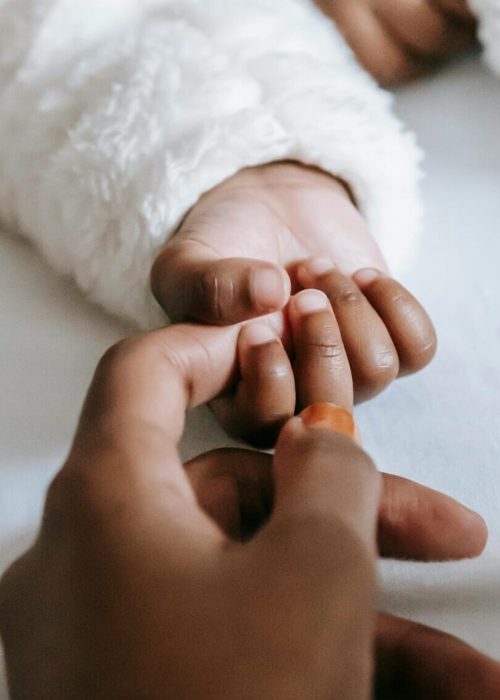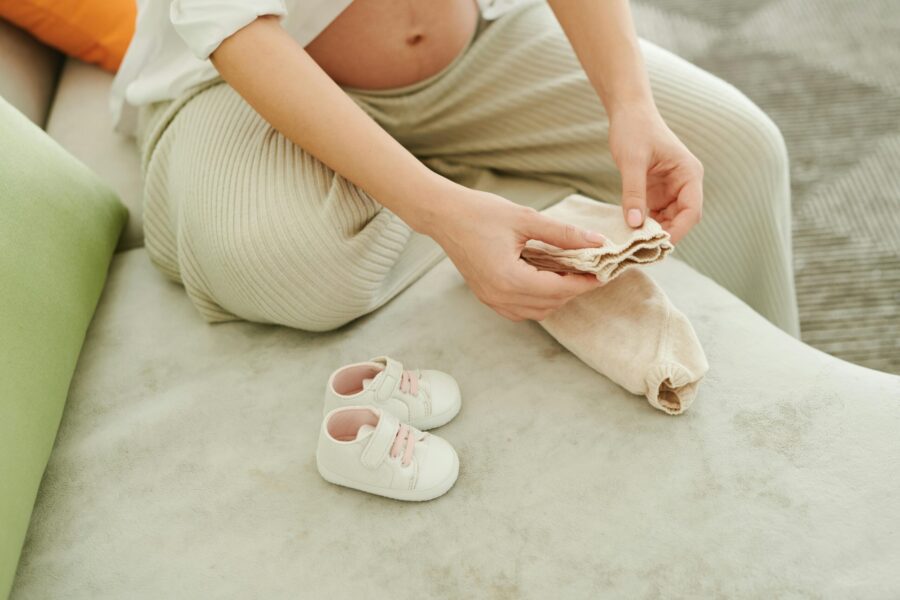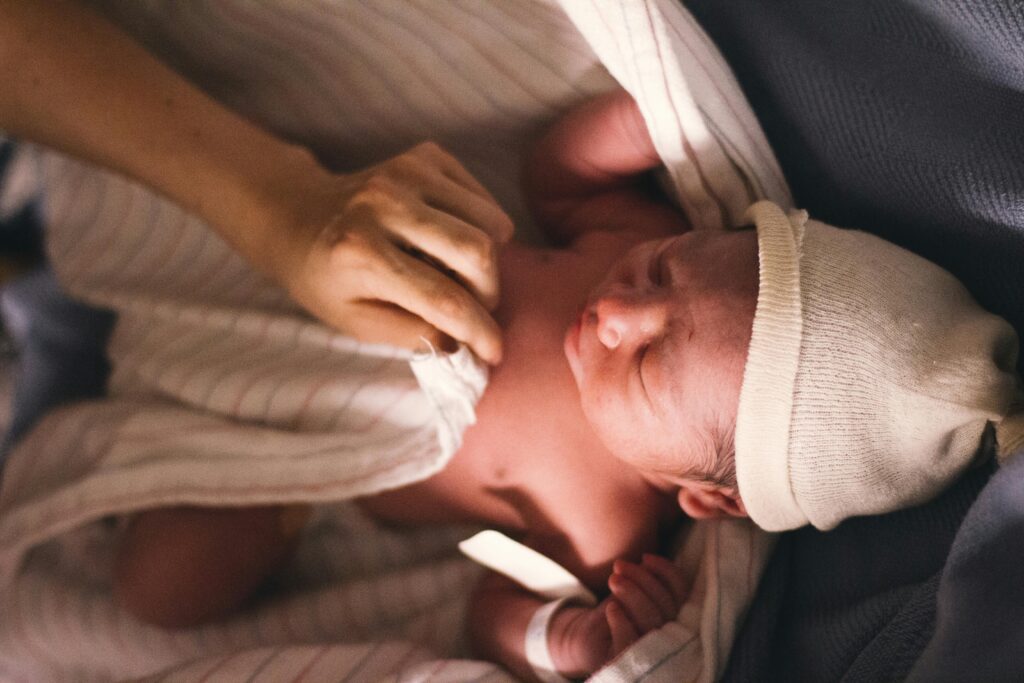Better, Wiser, Stronger: How the Newborn Phase Empowered Me

Becoming a new parent is one of the most beautiful and humbling experiences—but those first six weeks after birth? They hit differently. The sleepless nights, the hormonal shifts, the healing, the feeding… it’s a blur of love, chaos, and survival. And if you’ve been there, you know it’s not just about diapers and swaddles—it’s about navigating a new version of yourself.
When I had my first baby, we had just moved into our home. The nursery wasn’t finished, the baby furniture was still being assembled after delivery, and I hadn’t packed half the things I needed for the hospital. I didn’t even have a hospital bag ready. Somehow, we got through it—but I carried a lot of stress I didn’t need to. That lack of preparation stole some of the peace I desperately needed to soak in those newborn snuggles.
This time? I’m doing it differently. I’ve learned what truly makes a difference—and I want to share that with you. Whether you’re pregnant with your first or adding another little one to your crew, I hope this post helps you feel a little more ready and a lot more supported.

What Helped Me the Most the First Time Around
1. Skin-to-skin + contact naps
I didn’t know much going in, but holding my newborn close, letting them sleep on my chest, and leaning into that fourth trimester bonding was everything. It calmed both of us, helped with breast milk supply, and grounded me when nothing else made sense. It was also the beginning of our infant feeding journey—no matter how messy it was in those early days.
2. Accepting help without guilt
Letting my husband, mom, or a friend take over for a nap or meal was crucial. I didn’t need to “do it all”—I needed rest and healing. I learned quickly that asking for help didn’t make me weak—it made me wise. Especially during postpartum, when emotions and recovery collide, the support matters more than pride.
3. Postpartum recovery kit
Mesh underwear, peri bottle, ice packs. They’re not glamorous, but they were life-saving. I rotated between padsicles and regular pads, and I always kept supplies within reach. Filling your baby’s diaper with water and freezing it was helpful to ease the swelling and pain down there. Having a basket in every bathroom made it easier to care for myself without thinking twice. Trust me—baby care starts with mom care.
4. Feeding support early on
Breastfeeding didn’t come naturally to me. At the beginning there were some frustrating times and at one point I even wanted to give up. I reached out to a lactation consultant when I hit roadblocks. They were able to assist and helped me to believe I could do it. After a while breastfeeding became easy and painless! Breastfeeding isn’t always natural—it’s learned. And there’s no shame in needing support. It’s a huge part of infant feeding, and getting help early can change your entire journey. If you decide to use formula instead, that’s valid too. A fed baby is what matters most.
5. Nighttime basket for baby
I kept diapers, wipes, burp cloths, snacks, nipple cream, and water by my bed. It saved me during those 3 a.m. feedings. Not having to leave the room made the nights a little easier—and my postpartum recovery smoother.

What I’m Doing Differently This Time
With baby #2 arriving soon—and a toddler running around—I know how much smoother things run with preparation. I’ve swapped survival mode for intentional planning. Here’s what I’m changing this time:
1. Meal prepping (for real this time)
I’m prepping full breakfasts, lunches, dinners, and snacks in advance. No more living on crackers and granola bars. I’m making freezer-friendly meals like:
- Egg muffins and breakfast burritos
- High-protein pasta bakes
- Crockpot freezer bags
- Lactation snacks like lactation cookies and protein cookies
I’ve even made labeled bins in my freezer so my husband knows where everything is.
2. Trying a hands-free breast pump
I’ve researched better pump options and chose one I can walk around with. I want to nurse, pump, and still be able to play with my toddler—or throw in a load of laundry and do everything else. I’m prioritizing gear that supports me, not just the baby. Some insurance companies will even cover the breast pump.
3. Organizing baby clothes by size now
No more digging through storage bins at 2 a.m. I’ve prepped newborn and 0–3 month clothes in labeled drawers, with extras nearby. I also packed a “next size up” bin close by so I’m not hunting when growth spurts hit. I’ve even included pieces that will be cute for newborn photography.
4. Hospital bag: packed with a checklist
Last time, I winged it and regretted it. This time, I’ve created a detailed hospital bag checklist and actually packed it ahead of time. I included my own postpartum items (nursing bras, nipple cream, peri spray), not just baby onesies and diapers. Most hospitals will provide diapers for you. And yes—I actually packed it weeks ahead using my own Target baby registry must-haves.
5. Nursery is done (before birth!)
Furniture’s built, diapers are stocked, and I created a calming space just for baby. That peace of mind is something I didn’t realize I’d miss until last time. Even if baby sleeps in our room for a while, having a finished nursery brings me peace.
6. Nursing-friendly clothes I feel good in
I’ve invested in a few nursing-friendly outfits that are comfortable but don’t make me feel like I’m in survival mode 24/7. Soft nursing bras, button-down dresses, and cozy loungewear help me feel more like myself.
7. Practicing deep breathing and mindset work
Even just 5 minutes a day of slow breathing and mindset prep helps me feel more mentally prepared for labor and postpartum. It helps me to focus and prepare mentally for labor. I’ve been doing gentle stretches, affirmations, and listening to calming music. Birth is physical—but it’s also deeply emotional.

What I’d Tell a New Mom to Do (That No One Talks About Enough)
Some tips are everywhere—sleep when the baby sleeps, accept help, drink water. But here’s what people don’t always say out loud:
1. Create a “Do Not Disturb” plan
Decide ahead of time who can visit, when, and for how long. Set boundaries. You don’t owe anyone a visit with your newborn. Guard your energy and space. This is your time to heal and rest and bond with your baby.
2. Prep your own recovery station
Stock up on pads, stool softeners, nipple balm, pain relievers, and snacks for YOU. Your healing matters just as much as the baby’s feeding schedule. Make sure you eat foods that are high in fiber after baby.
3. Have a postpartum check-in buddy
Schedule text check-ins with a trusted friend or postpartum doula—just to ask “How are you doing?” Having someone who sees you and not just the baby is powerful. This can even help you recognize early signs of postpartum depression, which too many moms try to suffer through alone.
4. Make toddler-friendly activity stations
If you’ve got a toddler, prep a bin of toys, snacks, or independent play ideas they can access while you nurse or rock the baby. It keeps them engaged and gives you a moment to breathe.
5. Practice saying “no” with confidence
If someone asks to come over or hold the baby and you’re not up for it, say no. You’re allowed to protect your peace. Postpartum is not a performance or time to entertain guests.
6. Prep small comforts ahead of time
- Put a water bottle and lip balm in every room
- Load up a playlist of songs that ground you
- Buy snacks that bring you joy (not just nutrition)
These tiny comforts go a long way when you’re overwhelmed.
7. Be gentle with your expectations
Postpartum is not the time for productivity. It’s a time for bonding, healing, and grace. You don’t need to entertain, bounce back, or have a routine nailed down. You need support, softness, and room to feel.

Final Thoughts
You don’t need to have it all figured out. But you do deserve to feel as prepared, peaceful, and supported as possible—especially in those precious first six weeks.
Whether this is your first baby or your fourth, take what you’ve learned, give yourself grace, and don’t be afraid to do it differently this time.
You are not behind. You are not doing it wrong. You are growing a family and becoming a new version of yourself. That deserves care.
If you want to grab the hospital bag checklist I created this time around—so you don’t forget the nipple cream or the baby nail clippers again—you can download it here 🎒💞
You’ve got this, mama. I’m cheering for you every step of the way.